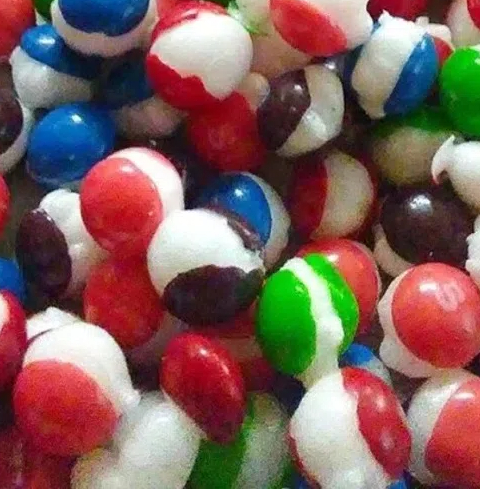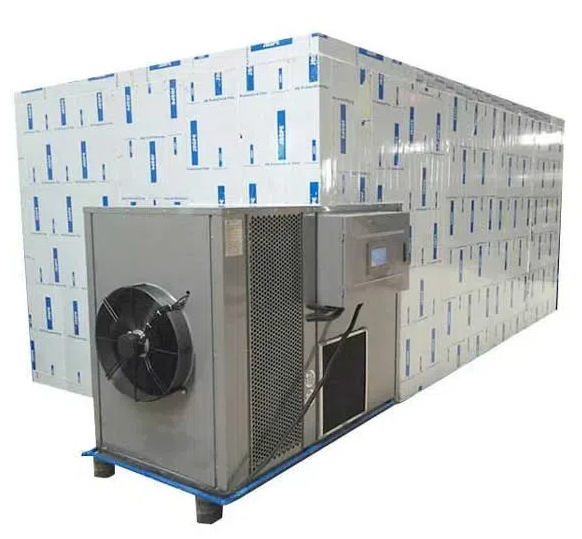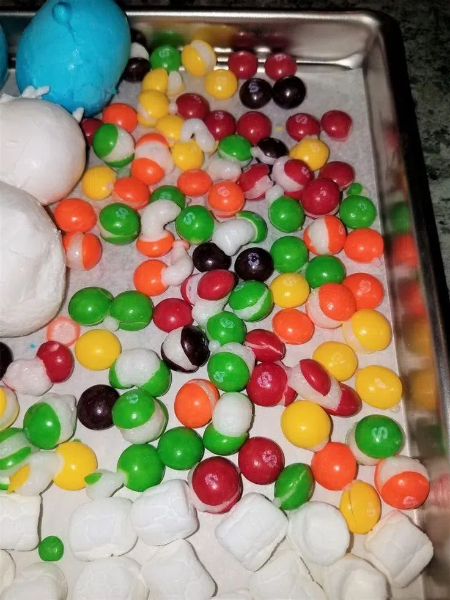
Content Menu
● Introduction
● Understanding Food Dehydration
>> What is Food Dehydration?
>> How Does a Food Dehydrator Work?
>> Benefits of Using a Food Dehydrator
● Freeze Drying vs. Dehydrating
>> What is Freeze Drying?
>> Key Differences Between Freeze Drying and Dehydrating
● Can a Food Dehydrator Freeze Dry Candy?
>> The Limitations of Food Dehydrators
>> What Happens When You Try to Dehydrate Candy?
>> Alternative Methods for Candy Preservation
● How to Use a Food Dehydrator for Other Foods
>> Step-by-Step Guide
>> Tips for Best Results
● Advanced Techniques for Effective Dehydration
>> Conditioning Dried Foods
>> Creating Fruit Leather
>> Making Jerky
● Creative Uses for Dried Foods
● Conclusion
● FAQ
>> 1. Can I use a food dehydrator for all types of candy?
>> 2. What types of foods are best suited for dehydration?
>> 3. How long does it take to dehydrate fruits?
>> 4. Is freeze drying better than dehydrating?
>> 5. Can I make my own freeze-dried candy at home?
● Citations:
Introduction
Food dehydrators are versatile appliances that can preserve a variety of foods by removing moisture. This process not only extends the shelf life of food but also enhances flavors and maintains nutritional value. One interesting question that arises is whether a food dehydrator can freeze dry candy. In this article, we will explore the capabilities of food dehydrators, the freeze-drying process, and how these methods can be applied to candy.

Understanding Food Dehydration
What is Food Dehydration?
Food dehydration is the process of removing moisture from food to inhibit the growth of bacteria, yeasts, and molds. This method has been used for centuries as a means of preservation.
How Does a Food Dehydrator Work?
A food dehydrator works by circulating warm air around the food to evaporate moisture. The temperature typically ranges from 95°F to 155°F (35°C to 68°C), depending on the type of food being dried.
Benefits of Using a Food Dehydrator
- Preservation: Extends the shelf life of fruits, vegetables, and meats.
- Nutritional Retention: Maintains vitamins and minerals better than other preservation methods.
- Flavor Enhancement: Concentrates flavors, making dried foods taste richer.
- Convenience: Easy to use with minimal supervision required.

Freeze Drying vs. Dehydrating
What is Freeze Drying?
Freeze drying, or lyophilization, involves freezing the food and then reducing the surrounding pressure to allow the frozen water in the food to sublimate directly from ice to vapor. This method preserves the structure and flavor of food exceptionally well.
Key Differences Between Freeze Drying and Dehydrating
| Feature | Dehydrating | Freeze Drying |
| Temperature | Low heat (95°F - 155°F) | Freezing followed by vacuum |
| Moisture Removal | Evaporation | Sublimation |
| Texture | Chewy or crispy | Light and crunchy |
| Nutritional Value | Good retention | Excellent retention |
| Equipment Cost | Lower cost | Higher cost |
Can a Food Dehydrator Freeze Dry Candy?
The Limitations of Food Dehydrators
While food dehydrators are excellent for drying fruits, vegetables, and meats, they do not have the capability to freeze dry candy. The primary reason is that dehydrators rely on heat to remove moisture, which can alter the texture and flavor of candy.
What Happens When You Try to Dehydrate Candy?
When candy is placed in a food dehydrator:
- Melting: Many candies contain sugar that melts when exposed to heat.
- Texture Change: The chewy or soft texture may become hard or overly crunchy.
- Flavor Alteration: Heat can change the flavor profile of certain candies.
Alternative Methods for Candy Preservation
If you are looking to preserve candy effectively, consider these methods:
- Vacuum Sealing: Removes air and keeps candy fresh without altering its texture.
- Refrigeration: Helps maintain freshness for a limited time.
- Freeze Drying: For those interested in preserving candy without changing its structure or flavor.
How to Use a Food Dehydrator for Other Foods
Step-by-Step Guide
1. Preparation: Wash and slice fruits or vegetables evenly.
2. Pre-Treatment (Optional): Soak in lemon juice or saltwater to prevent browning.
3. Loading the Dehydrator: Arrange slices in a single layer on trays.
4. Setting Temperature: Adjust according to the type of food (e.g., 135°F for fruits).
5. Monitoring: Check periodically for doneness; drying times vary.
Tips for Best Results
- Use ripe and fresh produce.
- Rotate trays for even drying.
- Store dried foods in airtight containers.
Advanced Techniques for Effective Dehydration
Conditioning Dried Foods
After dehydrating, it's crucial to condition your dried foods. This process helps ensure that any residual moisture is evenly distributed among pieces, preventing mold growth during storage.
1. Place your dried food in a large container.
2. Shake it daily for about a week.
3. If you notice any condensation inside the container, return the food to the dehydrator until fully dry.
Creating Fruit Leather
Fruit leather is a popular snack that can easily be made using a dehydrator:
1. Blend your choice of fruit until smooth.
2. Spread it evenly on non-stick dehydrator sheets.
3. Set your dehydrator at about 135°F (57°C) until it becomes pliable but not sticky.
Making Jerky
Jerky is another favorite among dehydrated snacks:
1. Choose lean cuts of meat and trim off excess fat.
2. Marinate your meat in your favorite seasonings overnight.
3. Slice thinly against the grain and load into your dehydrator at 160°F (71°C) until fully dried.
Creative Uses for Dried Foods
Dried foods can be used in various culinary applications:
- Soups and Stews: Add dried vegetables and meats directly into soups; they will rehydrate during cooking.
- Snacks: Create trail mixes with nuts and dried fruits for healthy snacks on-the-go.
- Baking Ingredients: Use powdered dried fruits or vegetables as natural flavor enhancers in baked goods.
Conclusion
In conclusion, while food dehydrators are fantastic tools for preserving various foods by removing moisture, they cannot freeze dry candy effectively due to their reliance on heat. Freeze drying remains the superior method for maintaining the original texture and flavor of candy. For those looking to preserve their favorite sweets without compromising quality, investing in a freeze dryer may be worthwhile.

FAQ
1. Can I use a food dehydrator for all types of candy?
No, most candies cannot be effectively dried in a dehydrator as they may melt or change texture.
2. What types of foods are best suited for dehydration?
Fruits, vegetables, herbs, and meats are ideal candidates for dehydration.
3. How long does it take to dehydrate fruits?
Dehydrating times vary but generally range from 6 to 12 hours depending on the fruit type and thickness.
4. Is freeze drying better than dehydrating?
Yes, freeze drying preserves texture and flavor better than traditional dehydration methods.
5. Can I make my own freeze-dried candy at home?
Yes, if you have access to a freeze dryer, you can make your own freeze-dried candy at home.
Citations:
[1] https://www.cnet.com/pictures/tips-for-using-your-new-dehydrator/
[2] https://www.webstaurantstore.com/guide/741/food-dehydrators-buying-guide.html
[3] https://eatsleepwild.com/homemade-dehydrated-backpacking-meals/
[4] https://www.backpackingchef.com/dehydrating-food.html
[5] https://www.dehydrate2store.com/howto/how-to-dehydrate-faq/
[6] https://www.youtube.com/watch?v=rXNIHzcE8F0
[7] https://learn.eartheasy.com/guides/a-beginners-guide-to-dehydrating-food/
[8] https://www.youtube.com/watch?v=sVtMuWXlyFI
[9] https://www.backpackingchef.com/food-dehydrator-recipes.html
[10] https://www.linkedin.com/pulse/common-questions-food-dehydrators-aradmachinery
[11] https://www.youtube.com/watch?v=LerlxsDYxe0
[12] https://www.thepurposefulpantry.com/dehydrating-faq/
[13] https://www.reddit.com/r/Cooking/comments/pbck40/dehydrator_recipes_that_arent_jerky_or_dried_fruit/
[14] https://homesteadingfamily.com/preservation-101-intro-to-dehydrating-food/
[15] https://www.hachettebookgroup.com/storey/buying-food-dehydrator/
[16] https://www.allrecipes.com/article/how-to-use-a-food-dehydrator/
[17] https://excaliburdehydrator.com/pages/faqs
[18] https://www.commercialdehydrators.com.au/dehydrating-recipes-filters
[19] https://www.freshoffthegrid.com/dehydrating-food/











